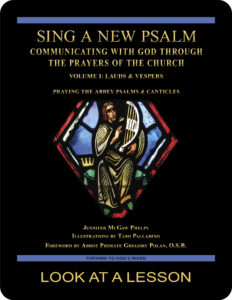fear of the LORD
 A regular topic for catechesis about the Catholic faith is an explanation of the seven gifts of the Holy Spirit as found in the Book of Isaiah 11:1–3 (NABRE). Much has been said and written about these gifts, but there often still arises a significant amount of confusion about one—the fear of the LORD.
A regular topic for catechesis about the Catholic faith is an explanation of the seven gifts of the Holy Spirit as found in the Book of Isaiah 11:1–3 (NABRE). Much has been said and written about these gifts, but there often still arises a significant amount of confusion about one—the fear of the LORD.
The concept that we should be afraid of God and moreover that such an attitude should be a gift is a difficult idea for us to accept. Dealing with this notion leads to some fairly common and often misinterpreted views about what fear of the LORD means.
The Hebrew word used is יִרְאָה (yir’ah). This word means “fear” or “terror,” and as a result, the literal and most basic meaning of fear of the LORD actually is to be afraid or terrified of God. How do you think the ideas of awe and wonder—frequently substituted for fear of the LORD— might be related to the Hebrew concept of fearing the LORD?
Why do you think it is that fear of the LORD is considered by Christians to be a gift? What might be the benefit for us in experiencing fear of God? Do you think that it’s possible for us to fear and love God at the same time?
related topic: fear & awe
you also may like Volume I of our Psalms study
 Sing a New Psalm: Communicating with God Through the Prayers of the Church—Volume I: Lauds & Vespers provides an in-depth look at Psalms prayed in morning and evening liturgies. (Volume II, set for publication in 2024, looks at Vigils, Day Prayer & Compline.) The study is based on The Abbey Psalms and Canticles, a translation prepared by the Benedictine monks of Conception Abbey and published by the United States Conference of Catholic Bishops (USCCB). Click on the book’s cover to view a sample lesson.
Sing a New Psalm: Communicating with God Through the Prayers of the Church—Volume I: Lauds & Vespers provides an in-depth look at Psalms prayed in morning and evening liturgies. (Volume II, set for publication in 2024, looks at Vigils, Day Prayer & Compline.) The study is based on The Abbey Psalms and Canticles, a translation prepared by the Benedictine monks of Conception Abbey and published by the United States Conference of Catholic Bishops (USCCB). Click on the book’s cover to view a sample lesson.
 Click on the picture of the statue of Moses with horns (above) to learn more about Lost in Translation. A new entry is archived each Monday. Contact us to receive Lost in Translation by email every week. You may use any of the contact links on our website to ask Matthew a question.
Click on the picture of the statue of Moses with horns (above) to learn more about Lost in Translation. A new entry is archived each Monday. Contact us to receive Lost in Translation by email every week. You may use any of the contact links on our website to ask Matthew a question.
